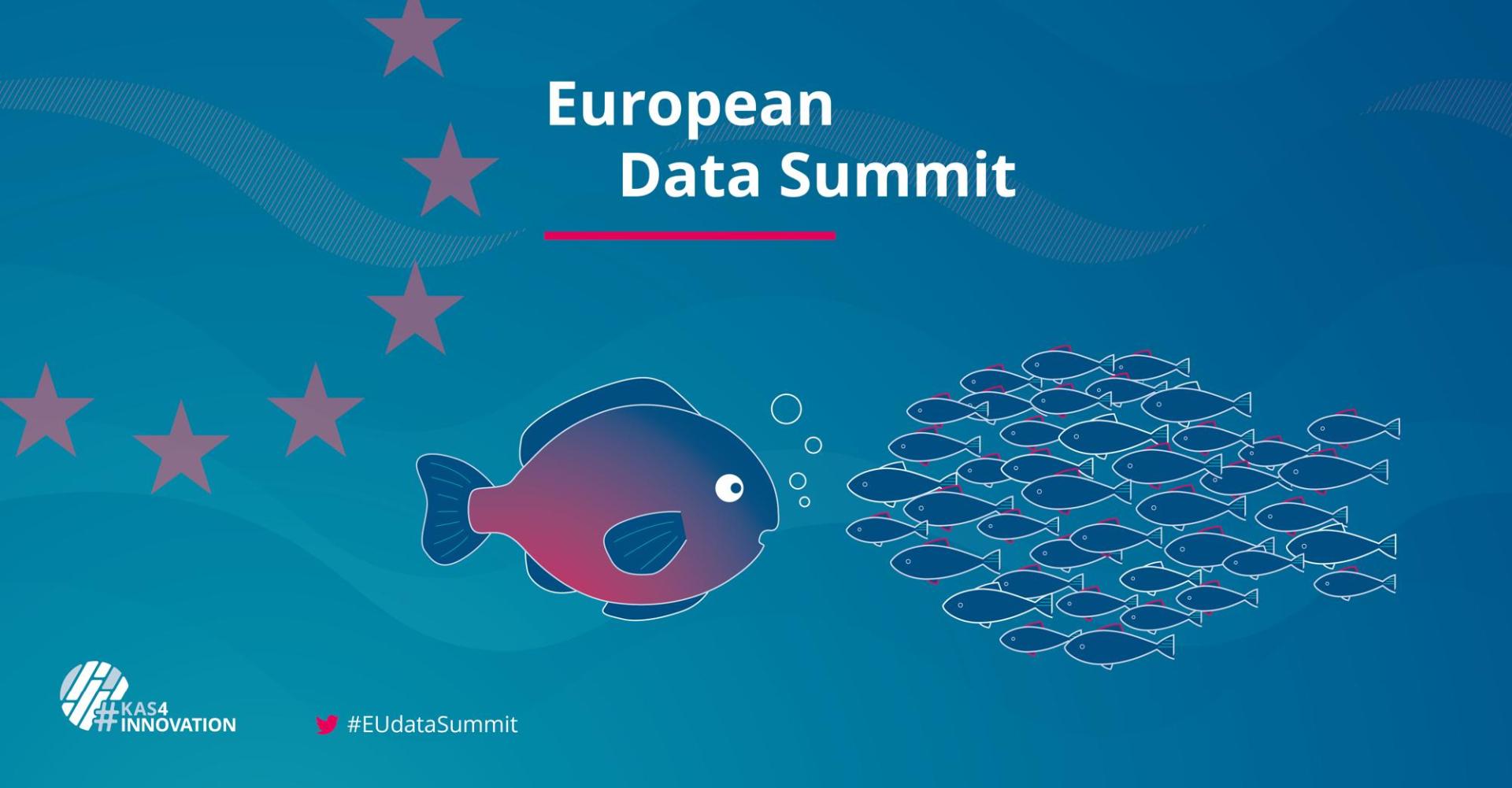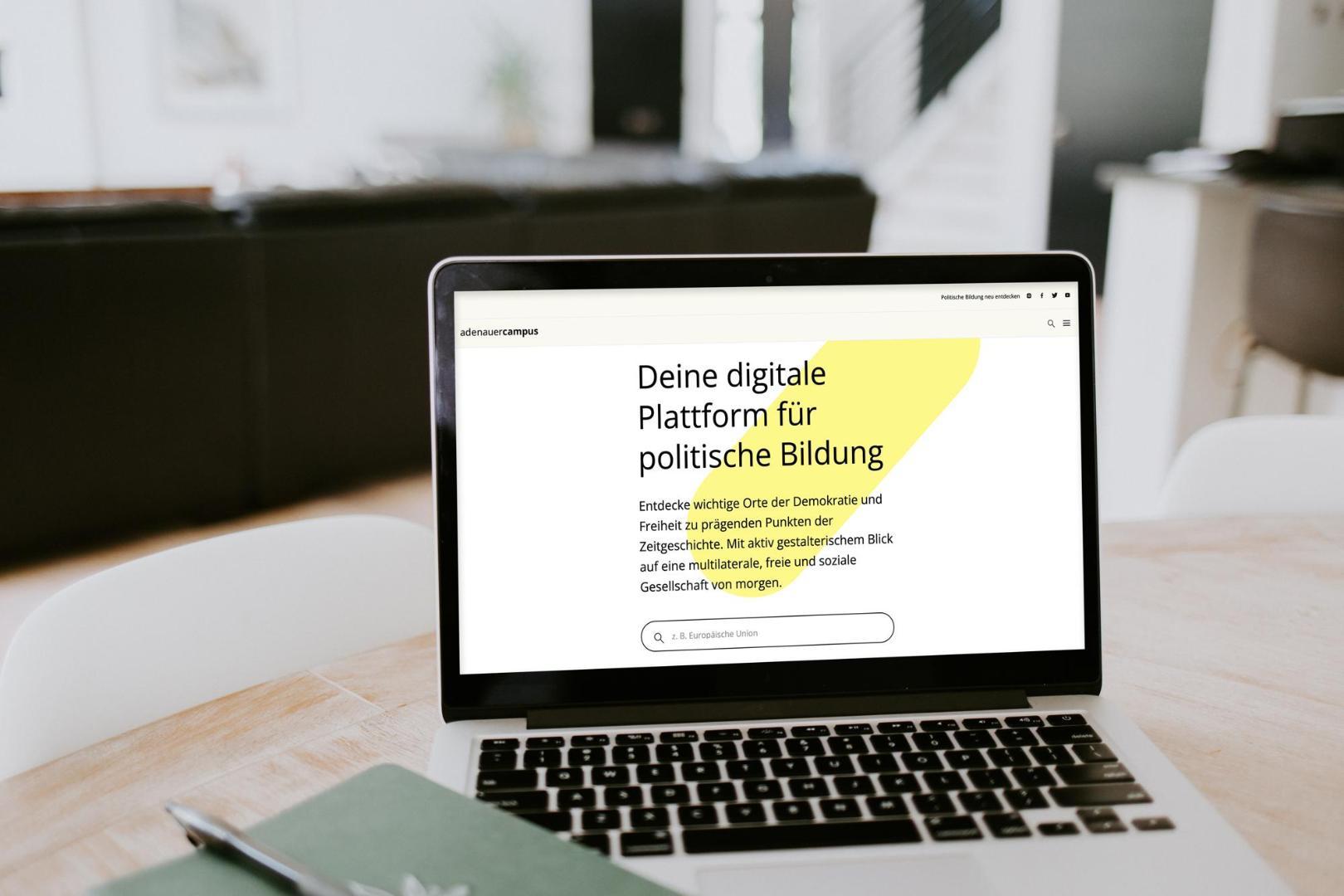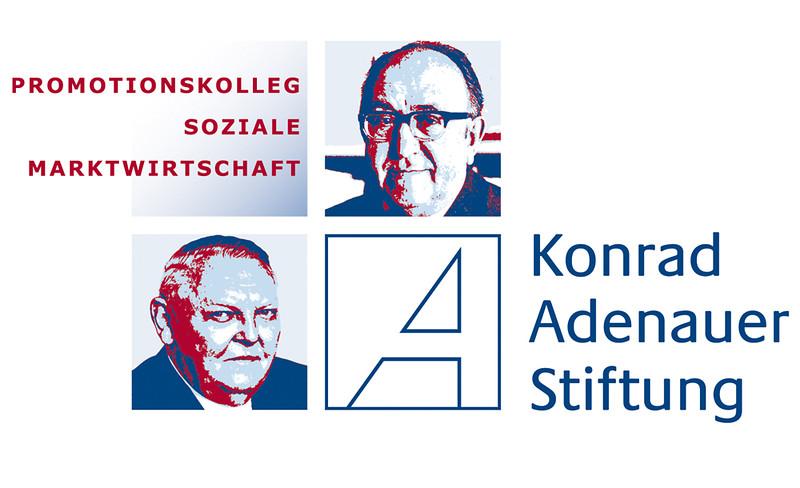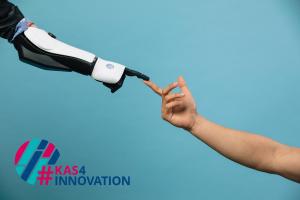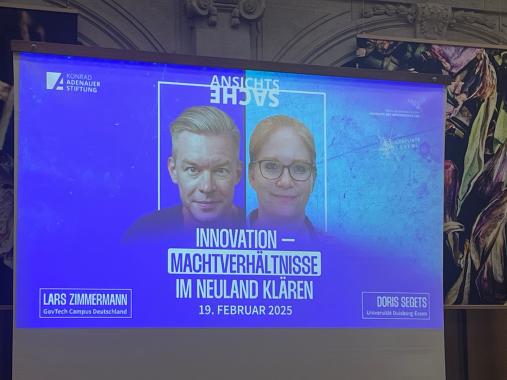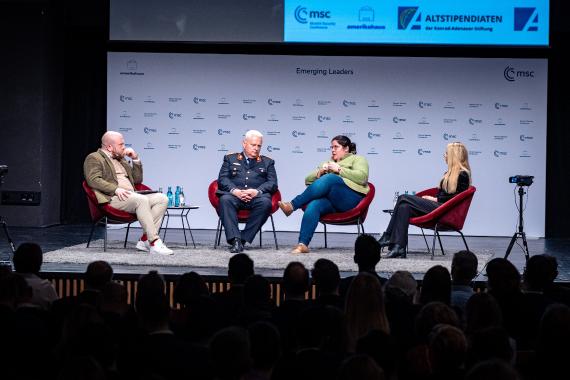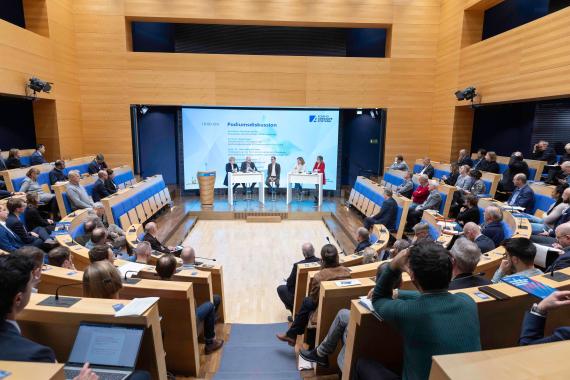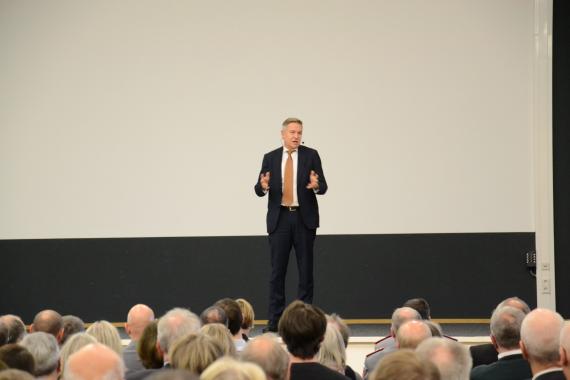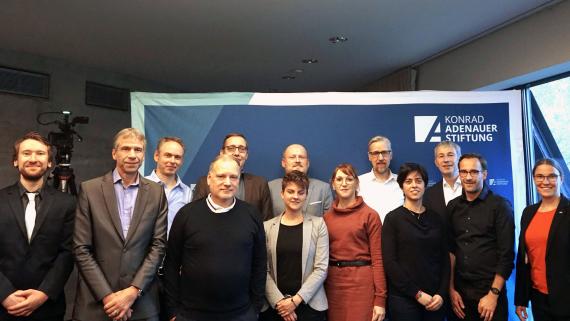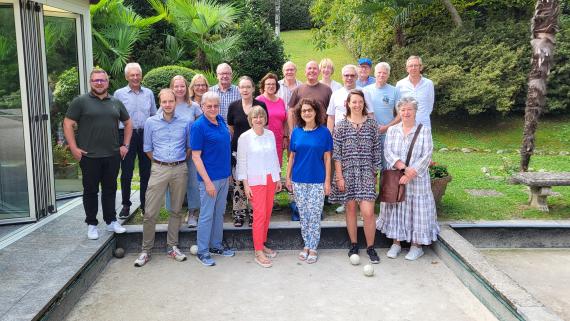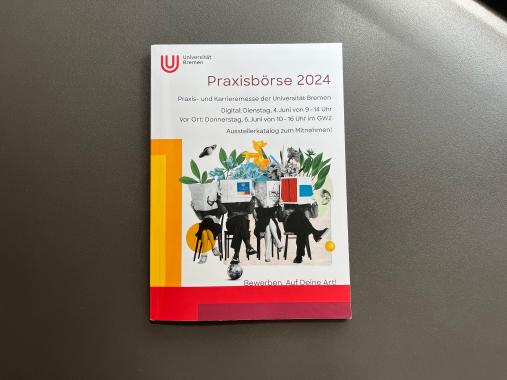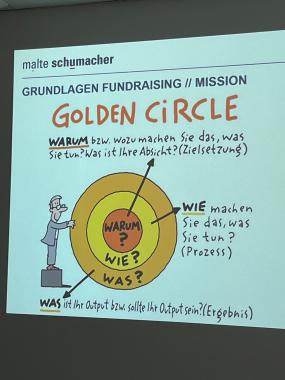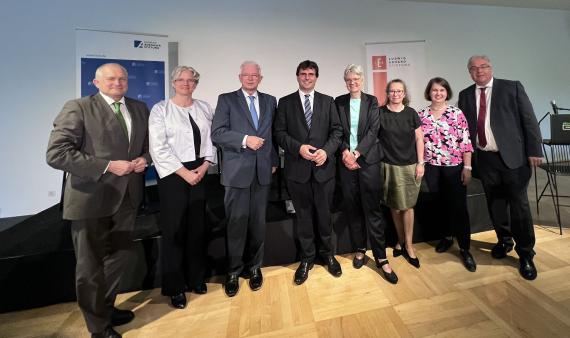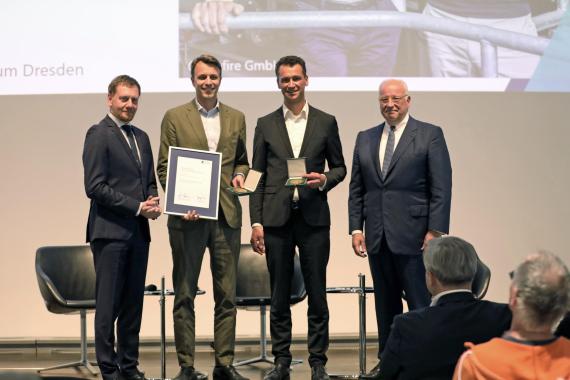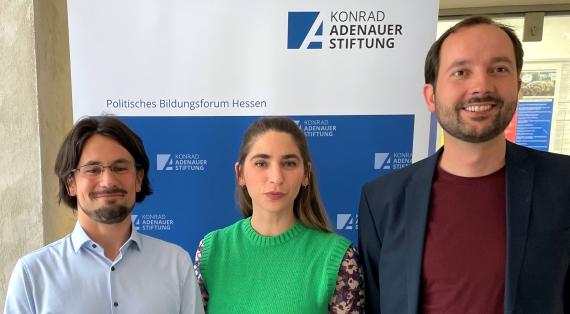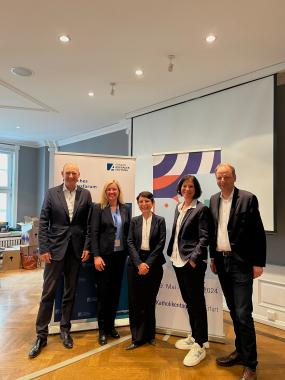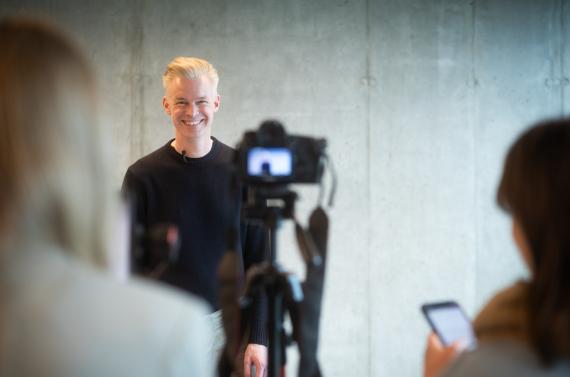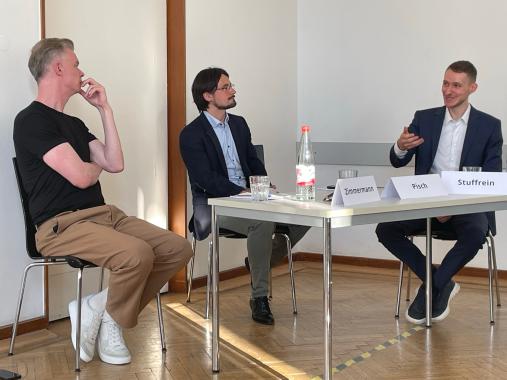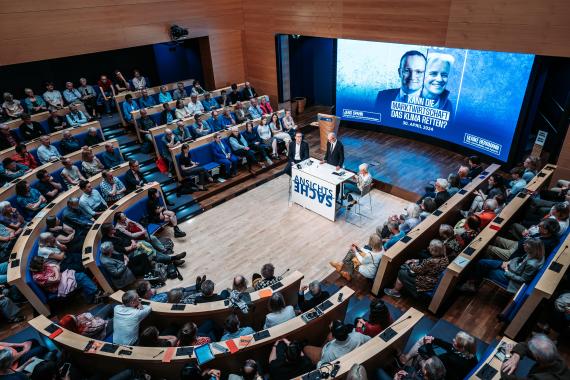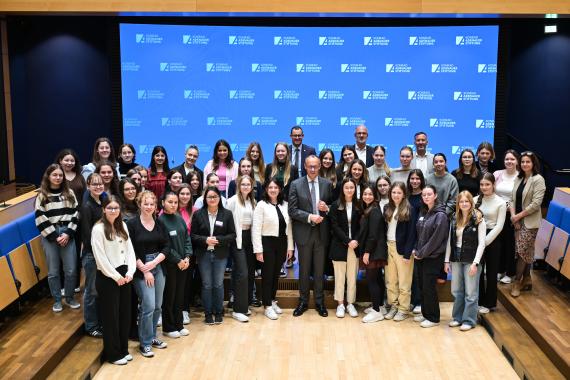We have a duty to think in generations and to build a solid foundation for a happy future for our children and our children’s children.
At a glance
- Freedom and competition remain key aspects for the future viability of the German economy. They are guaranteed by the concept of the social market economy, which strives for social balance.
- One of the most important reasons for Germany's economic strength and prosperity is the innovative power of entrepreneurs and researchers.
- In order for market-ready innovations to emerge from excellent research and development in Germany and Europe and for profits to be generated in the European single market, less bureaucracy, bold investments and a predictable economic policy are needed.
- As a Christian Democratic concept, the social market economy represents a balance between the state and the market.
- With its analyses and advice, Konrad-Adenauer-Stiftung is helping to successfully shape the innovative transformation of the economy in Germany and Europe.
Content
1. Innovation and competitive strength
2. Regulatory framework social market economy
3. Our offers and projects on the topic
4. Publications, events and media contributions on the topic
Germany is a country that is not rich in raw materials; this makes the German economy all the most dependent on the knowledge and skills of its people. The cornerstone of Germany’s economic clout and prosperity is the innovative power of entrepreneurs, companies and developers. Having said that, the pressure on competitiveness has drastically increased in recent decades due to global interdependence and the opening of new markets. As the "country of ideas”, Germany is not represented in the immediate top group in global innovation rankings and indices. Business models are increasingly shifting towards services, digitalisation and the data economy.
Innovation and competitive strength
The German economy will only safeguard its global competitiveness if it harnesses the opportunities inherent in technological progress – and namely faster and better than before. Less bureaucracy, bold investments and a predictable economic policy are needed so that market-ready innovations can emerge from excellent research and development in Germany and Europe and profits can be generated in the European single market.
Freedom and competition are central to the ability to innovate. That is because competition drives innovation, leading to sustainable, economic progress and to cheaper and better services for society. Competition requires entrepreneurial freedom, too, since innovations take place on the market as opposed to the political sphere.
Regulatory framework social market economy
The economic and socio-political regulatory framework for a balance between state and market represents the Christian Democratic concept of the social market economy. It is considered to be another essential pillar of the German economy and society. The social market economy calls for both state action as well as entrepreneurial freedom and competition to become aware of their roles and limits. It has always been the bracket that holds together the principle of economic freedom with the principle of social balance and the preservation of creation. Nowadays, this concept is more familiar under the term “sustainability.”
Although times have changed and the economy and society have constantly evolved since the founding the of the Federal Republic of Germany, even today, a majority of Germans still rate the social market economy as positive. Having said that, a world facing multiple upheavals also requires a successful economic system to confront and adapt to new challenges. This gives rise to key questions for the Konrad-Adenauer-Stiftung, which are dealt with in various analyses as well as discussions and publication formats.
Our offers and projects on the topic
Event series
The Konrad-Adenauer-Stiftung offers many events on economic and innovations topics. Particularly noteworthy in this context is the European Data Summit, a three-day format on data and digital topics that takes place each year in autumn and ranks among our flagship events.
European Data Summit
The European Data Summit is a symposium organised by the Konrad-Adenauer-Stiftung at which experts address the prerequisites for a digital European single market. A focus is also placed on the connection of the topic to the European Union’s regulatory projects.
Publication, video and website projects
Time and again, we set priorities on certain topics, which we realise and present in different formats. Above all, this includes multi-party publication projects and series along with video projects in which we controversially discuss certain aspects of a topic.
Web3 and Blockchain
Advancing digitalisation is driving economic innovation: from Web1 to Web2 to Web3. Web1 stood for the static internet, while Web2 introduced social networks and interactivity. Web3 harbours the potential to guarantee more security, privacy and user autonomy. At the heart of Web3 is blockchain technology, which enables innovations such as smart contracts, tokens, cryptocurrencies and digital currencies through decentralised structures. It could also contribute to improved data protection in the development of artificial intelligence, create new business areas for small and medium-sized enterprises and start-ups and strengthen digital sovereignty. Below you will find basic studies and insights into specific fields of application.
Free trade - Understanding global trade anew
Open world markets have undeniably led to unprecedented prosperity and technological progress. Nevertheless, global trade is currently highly controversial, as climate change, global inequalities and strategic dependencies seem to partially offset the benefits of free trade. Clearly, there is a need for rules governing global trade. On our overview page, we introduce this complex topic and, with our publications and video contributions, offer discussion approaches and suggestions on how free trade could be further developed with a view to climate change and new global political realities.
Quantum Computers and their Importance for Society
Quantum computers are considered a significant future technology with great economic and social potential. Against this background, our publications on the topic not only address the basics, possible applications and social implications of this technology, but also provide recommendations for action.
Competition Policy in the Digital World
Digital platform companies are the big so-called “gatekeepers” on the digital markets. Yet it is not Europe that is successful here, but Asian and American companies for the most part. The seven most valuable companies worldwide either come from the USA or China. Europe is in great danger of not keeping apace with the rest of the world. To ensure that this does not happen, we are intensively addressing competition policy questions on topics such as data economy or Industry 4.0. The publications of our publication project on competition policy in the digital world aim to contribute towards this and demonstrate corresponding recommendations for action.
Learn more about the publications on digital competition policy
Scholarship and didactic offers
On the web page of our learning laboratory, the Adenauer Campus, teachers and pupils can find teaching material and exercises for the classroom, which are well prepared and divided into several learning modules. Doctoral students will also find what they are looking for here. Those wanting to obtain a doctorate and who are interested in the social market economy, may want to look into the interdisciplinary doctoral programme “Social Market Economy”.
Didactic Teaching Material for the Classroom
The learning laboratory of our Adenauer Campus, the Konrad-Adenauer-Stiftung’s digital learning platform, provides teachers, pupils as well as politically interested people with a broad range of teaching and learning opportunities. In addition to exciting learning content, there are also classroom exercises on the topic of the social market economy. We invite all interested people to take a closer look at our free and interactive offers.
“Social Market Economy” doctoral programme
With the “Social Market Economy” doctoral programme, the Konrad-Adenauer-Stiftung presents doctoral candidates with an exciting study and research opportunity. It intends to stimulate the academic debate on basic principles of the social market economy, and inspire its creative further development against the background of current challenges for politics, society and the economy.
The dissertation topics should make a significant scientific contribution to understanding the social market economy model, and demonstrate practical relevance. The fellows are supervised by the Academic Advisory Board and undergo an accompanying curriculum comprising doctoral seminars on the basics of the social market economy and regulatory thinking as well as on economic policy.
Learn more about the “Social Market Economy” doctoral programme
Prizes
The Konrad-Adenauer-Stiftung has been awarding the Social Market Economy Prize since 2002. The award-winners are nominated by a jury consisting of renowned members and confirmed by the Stiftung’s Board of Directors.
Social Market Economy Prize
With the Social Market Economy Prize, the Konrad-Adenauer-Stiftung honours personalities who champion the preservation, realisation and further development of the social market economy. When selecting the winners, the jury places special emphasis on those who exhibited a high degree of independence and individual responsibility or have made an important contribution to the justice of our economic and social system.



